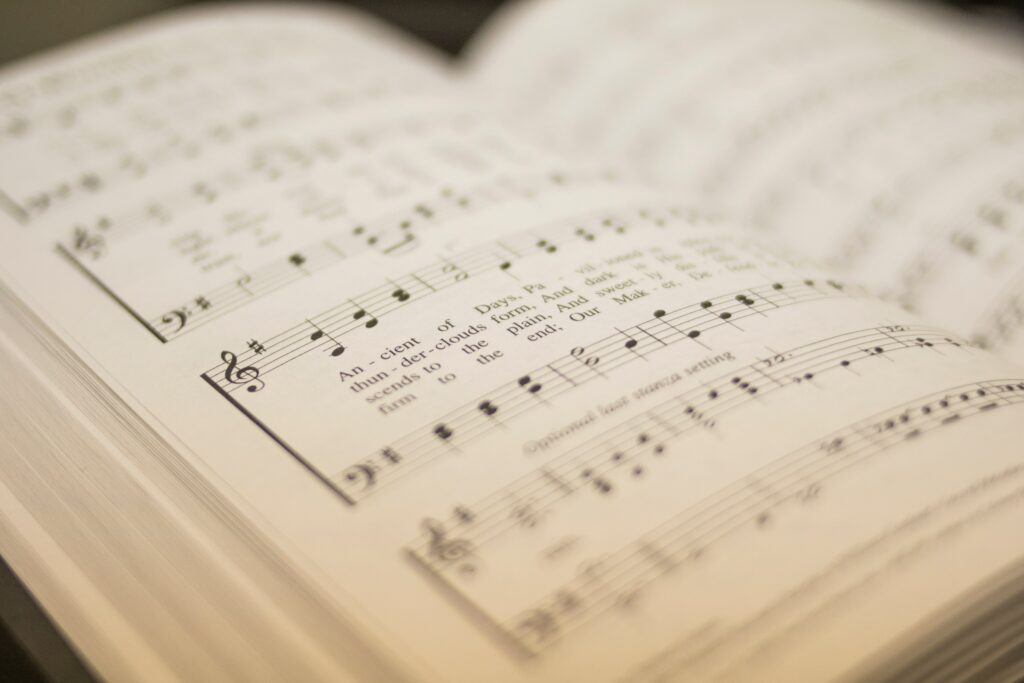
In the series just concluded, I noted that biblical benedictions are sometimes suggested as representing early hymnic material. I’d like to take just a couple of posts to discuss a couple of the more well-loved biblical benedictions.
The one that comes first to my mind is the one my childhood pastor ended every Sunday morning service with. After the closing prayer there would be a musical interlude while the congregation stood with heads bowed. During that time he would walk to the back of the sanctuary in order to greet us as we left; and from there, with unamplified voice, he would call out over us,
Now unto him that is able to keep you from falling
And to present you faultless before the presence of his glory with exceeding joy,
To the only wise God, our Saviour,
Be glory and majesty, dominion and power, both now and ever.
Amen (Jude 24-25).
Decades later I still miss those words of blessing from the back of the room.
Those words are indeed strong and filled with grace, and they deserve a closer look.
We should begin by noting a couple of variants in wording—
- Some manuscripts don’t have the word wise. Some have suggested that perhaps the idea came to a copyist’s mind from Romans 16.27.
- Some manuscripts end with “before all time and now and ever.” Since Jude has a noteworthy fondness for groups of three, this would make sense.
This passage is an ascription of greatness to God; he is the one being “blessed” by the benediction. His greatness as described here is fourfold:
- Glory
- Majesty
- Dominion
- Power
He is a God of authority, whose authority manifests itself in brightness, in impressiveness, in ability to see that his will is done. His greatness is beyond all other; there is no second place.
And to what does he apply his sovereign power in this passage?
To us. To his people.
To keep us from stumbling, and then—consequently—to present us blameless at the end before his all-seeing eye.
But I do stumble. A lot.
So what does this mean?
Context.
Jude is writing about false teachers (Jude 4), who present an imminent danger (Jude 3) to the church. He is concerned that some will be led astray by these “clouds without water,” “trees without fruit,” “wandering stars” [planets]—lights that you can’t count on for purposes of navigation (Jude 12-13).
To strengthen the believers against this error, Jude urges them to remember what the apostles taught (Jude 17), to pray in the Spirit (Jude 20), to look ahead in anticipation of Christ’s return (Jude 21).
Will they succeed? Will they endure?
Oh, yes. God is able to prevent them from stumbling, and to present them blameless at the end.
This passage doesn’t promise that we’ll never stumble into sin. But it does promise that God’s grace can enable us to persevere to the end—to stand before his throne still blameless, still washed by the blood of Christ, still cleansed from the sin in which we all too readily engaged.
Yes, our obedience matters. Yes, we must resist sin. But in the end our victory comes not because we were strong enough to persist in resisting, but because God carried us through to the end.
He is able to do that.
And he will.
Because he is great, and he is good.
Fear not, little flock, for it is your Father’s good pleasure to give you the kingdom (Lk 12.32).
Part 2: Every Good Thing | Part 3: He Will Do It
Photo by Michael Maasen on Unsplash
